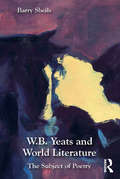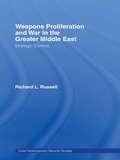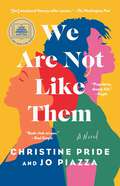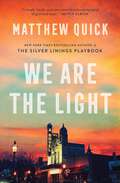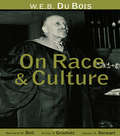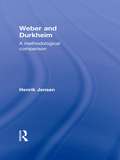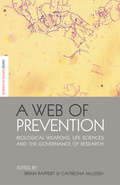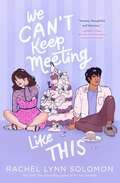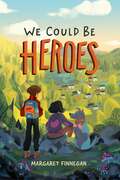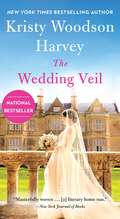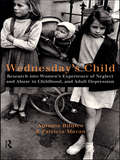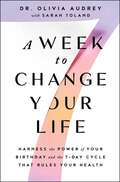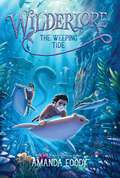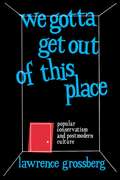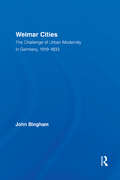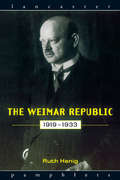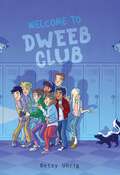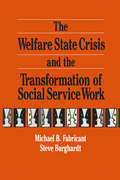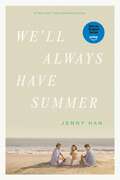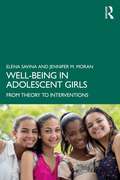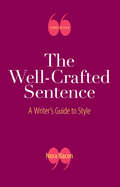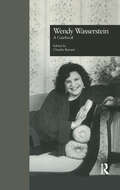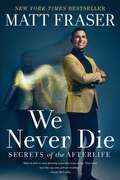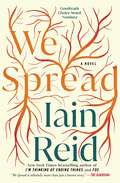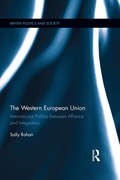Special Collections
Benetech’s Global Certified Accessible Titles
Description: Benetech’s GCA program is the first independent third-party EPUB certification to verify ebook accessibility. By creating content that is born accessible, publishers can meet the needs of all readers. Learn more: https://bornaccessible.benetech.org/
- Table View
- List View
W.B. Yeats and World Literature
by Barry SheilsArguing for a reconsideration of William Butler Yeats’s work in the light of contemporary studies of world literature, Barry Sheils shows how reading Yeats enables a fuller understanding of the relationship between the extensive map of world literary production and the intensities of poetic practice. Yeats’s appropriation of Japanese Noh theatre, his promotion of translations of Rabindranath Tagore and Shri Purohit Swãmi, and his repeated ventures into American culture signalled his commitment to moving beyond Europe for his literary reference points. Sheils suggests that a reexamination of the transnational character of Yeats's work provides an opportunity to reflect critically on the cosmopolitan assumptions of world literature, as well as on the politics of modernist translation. Through a series of close and contextual readings, the book demonstrates how continuing global debates around the crises of economic liberalism and democracy, fanaticism, asymmetric violence, and bioethics were reflected in the poet's formal and linguistic concerns. Challenging orthodox readings of Yeats as a late-romantic nationalist, W.B. Yeats and World Literature: The Subject of Poetry makes a compelling case for reading Yeats’s work in the context of its global modernity.
Weapons Proliferation and War in the Greater Middle East
by Richard L. RussellThis important new book explores the strategic reasons behind the proliferation of nuclear, biological and chemical weapons as well as ballistic missile delivery systems in the Greater Middle East. It examines the uses and limitations of chemical weapons in regional combat, ballistic missile warfare and defenses, as well as Iran's drive for nuclear weapons and the likely regional reactions should Tehran acquire a nuclear weapons inventory. This book also discusses Chinese assistance to WMD and ballistic programs in the Greater Middle East. Finally, this book recommends policy options for American diplomacy to counter the challenges posed by WMD proliferation. This essential study prepares the ground for the challenges facing the international community.Richard Russell is a professor at the National Defense University's Near East-South Asia Center for Strategic Studies in Washington, DC. He also teaches at the Security Studies Program at Georgetown University. He previously served as a political-military analyst at the CIA.
We Are Not Like Them
by Jo Piazza and Christine PrideA GOOD MORNING AMERICA BOOK CLUB PICK Named a Best Book Pick of 2021 by Harper&’s Bazaar and Real Simple Named a Most Anticipated Book of Fall by People, Essence, New York Post, PopSugar, New York Newsday, Entertainment Weekly, Town & Country, Bustle, Fortune, and Book Riot Told from alternating perspectives, this &“propulsive, deeply felt tale of race and friendship&” (People) follows two women, one Black and one white, whose friendship is indelibly altered by a tragic event.Jen and Riley have been best friends since kindergarten. As adults, they remain as close as sisters, though their lives have taken different directions. Jen married young, and after years of trying, is finally pregnant. Riley pursued her childhood dream of becoming a television journalist and is poised to become one of the first Black female anchors of the top news channel in their hometown of Philadelphia. But the deep bond they share is severely tested when Jen&’s husband, a city police officer, is involved in the shooting of an unarmed Black teenager. Six months pregnant, Jen is in freefall as her future, her husband&’s freedom, and her friendship with Riley are thrown into uncertainty. Covering this career-making story, Riley wrestles with the implications of this tragic incident for her Black community, her ambitions, and her relationship with her lifelong friend. Like Tayari Jones&’s An American Marriage and Jodi Picoult&’s Small Great Things, We Are Not Like Them takes &“us to uncomfortable places—in the best possible way—while capturing so much of what we are all thinking and feeling about race. A sharp, timely, and soul-satisfying novel&” (Emily Giffin, New York Times bestselling author) that is both a powerful conversation starter and a celebration of the enduring power of friendship.
We Are the Light
by Matthew QuickFrom Matthew Quick, the New York Times bestselling author of The Silver Linings Playbook—made into the Academy Award–winning movie starring Jennifer Lawrence and Bradley Cooper—comes a poignant and hopeful novel about a widower who takes in a grieving teenager and inspires a magical revival in their small town.Lucas Goodgame lives in Majestic, Pennsylvania, a quaint suburb that has been torn apart by a recent tragedy. Everyone in Majestic sees Lucas as a hero—everyone, that is, except Lucas himself. Insisting that his deceased wife, Darcy, visits him every night in the form of an angel, Lucas spends his time writing letters to his former Jungian analyst, Karl. It is only when Eli, an eighteen-year-old young man whom the community has ostracized, begins camping out in Lucas&’s backyard that an unlikely alliance takes shape and the two embark on a journey to heal their neighbors and, most importantly, themselves. From Matthew Quick, whose work has been described by the Boston Herald as &“like going to your favorite restaurant. You just know it is going to be good,&” We Are the Light is an unforgettable novel about the quicksand of grief and the daily miracle of love. The humorous, soul-baring story of Lucas Goodgame offers an antidote to toxic masculinity and celebrates the healing power of art. In this tale that will stay with you long after the final page is turned, Quick reminds us that life is full of guardian angels.
W.E.B. Du Bois on Race and Culture
by James B. Stewart and Bernard W. Bell and Emily R. GrosholzInterpreting Du Bois' thoughts on race and culture in a broadly philosophical sense, this volume assembles original essays by some of today's leading scholars in a critical dialogue on different important theoretical and practical issues that concerned him throughout his long career: the conundrum of race, the issue of gender equality, and the perplexities of pan-Africanism.
Weber and Durkheim
by Henrik JensenWeber and Durkheim: A methodological comparison is a systematic, comparative analysis of the methodologies of Max Weber and Émile Durkheim. Jensen shows how Weber and Durkheim analyse Protestants and Catholics in practice in The Protestant Ethic and Suicide, respectively. The very different ways that Weber and Durkheim carry out their analyses are then used to describe, analyse and contrast their methodological principles and points of view, raising fundamental questions in sociological and social science analysis, such as: What constitutes the object of sociology? How are concepts developed? What status can be attributed to laws? Which possibilities – and limitations – do we have for producing scientific insight into society? What are we to think of the relationship between ‘Is’ and ‘Ought’ – and how can social science deal with values? How are social phenomena to be explained? This book will be a valuable resource for students and scholars of sociology, social methodology, political theory, political science, social theory and philosophy.
A Web of Prevention
by Brain Rappert and Caitríona McLeishWeb of Prevention provides a timely contribution to the current debate about life science research and its implications for security. It is an informative guide for both experts and the public. It is a forward-looking contribution covering both ends of the equation and creates momentum for the current discussion on effective preventive measures and effective control measures. While there are no guarantees for preventing misuse, there are nonetheless crucial steps the world community can take towards the overarching goal of a global network for the life sciences. This book sheds light on concrete steps toward the achievement of this worthy goal. "This book with its collection of essays provides an in-depth analysis of the various mutually reinforcing elements that together create and strengthen a web of prevention - or of assurance - that is vital to ensure that the advances in the life sciences are not misused to cause harm. All those engaged in the life sciences and in policy making in governments around the world should read this book so they can take steps to strengthen the web preventing biological weapons". From the Foreword by Dr Gabriele Kraatz-Wadsack, Chief, Weapons of Mass Destruction Branch, Office for Disarmament Affairs, United Nations. "Since September 11, 2001 in many countries renewed attention has been given to how research in the life sciences might inadvertently or intentionally facilitate the development of biological or chemical weapons. This state-of-the-art volume examines the full extent of the issues and debates. Coverage includes an overview of recent scientific achievements in virology, microbiology, immunology and genetic engineering with a view to asking how they might facilitate the production of weapons of mass destruction by state, sub-state or terrorist organizations. Consideration is given to what we have and haven't learned from the past. Employing both academic analysis and reflections by practitioners, the book examines the security-inspired governance regimes for the life sciences that are under development. Ultimately the authors examine what is required to form a comprehensive and workable web of prevention and highlight the importance of encouraging discussions between scientists, policy makers and others regarding the governance of vital but potentially dangerous research".Dr Graham S. Pearson, Visiting Professor of International Security, University of Bradford, UK and previously Director-General, Chemical and Biological Defence Establishment, UK
We Can't Keep Meeting Like This
by Rachel Lynn SolomonA wedding harpist disillusioned with love and a hopeless romantic cater-waiter flirt and fight their way through a summer of weddings in this effervescent romantic comedy from the acclaimed author of Today Tonight Tomorrow.Quinn Berkowitz and Tarek Mansour&’s families have been in business together for years: Quinn&’s parents are wedding planners, and Tarek&’s own a catering company. At the end of last summer, Quinn confessed her crush on him in the form of a rambling email—and then he left for college without a response. Quinn has been dreading seeing him again almost as much as she dreads another summer playing the harp for her parents&’ weddings. When he shows up at the first wedding of the summer, looking cuter than ever after a year apart, they clash immediately. Tarek&’s always loved the grand gestures in weddings—the flashier, the better—while Quinn can&’t see them as anything but fake. Even as they can&’t seem to have one civil conversation, Quinn&’s thrown together with Tarek wedding after wedding, from performing a daring cake rescue to filling in for a missing bridesmaid and groomsman. Quinn can&’t deny her feelings for him are still there, especially after she learns the truth about his silence, opens up about her own fears, and begins learning the art of harp-making from an enigmatic teacher. Maybe love isn&’t the enemy after all—and maybe allowing herself to fall is the most honest thing Quinn&’s ever done.
We Could Be Heroes
by Margaret FinneganShiloh meets Raymie Nightingale in this funny and heartwarming debut novel about a ten-year-old that finds himself in a whole mess of trouble when his new friend Maisie recruits him to save the dog next door.Hank Hudson is in a bit of trouble. After an incident involving the boy&’s bathroom and a terribly sad book his teacher is forcing them to read, Hank is left with a week&’s suspension and a slightly charred hardcover—and, it turns out, the attention of new girl Maisie Huang. Maisie has been on the lookout for a kid with the meatballs to help her with a very important mission: Saving her neighbor&’s dog, Booler. Booler has seizures, and his owner, Mr. Jorgensen, keeps him tied to a tree all day and night because of them. It&’s enough to make Hank even sadder than that book does—he has autism, and he knows what it&’s like to be treated poorly because of something that makes you different. But different is not less. And Hank is willing to get into even more trouble to prove it. Soon he and Maisie are lying, brown-nosing, baking, and cow milking all in the name of saving Booler—but not everything is as it seems. Booler might not be the only one who needs saving. And being a hero can look a lot like being a friend.
The Wedding Veil
by Kristy Woodson HarveyThis &“masterfully woven…literary home run&” (New York Journal of Books) follows four women across generations, bound by a beautiful wedding veil and a connection to the famous Vanderbilt family from the New York Times bestselling author of the Peachtree Bluff series.Four women. One family heirloom. A secret connection that will change their lives—and history as they know it. Present Day: Julia Baxter&’s wedding veil, bequeathed to her great-grandmother by a mysterious woman on a train in the 1930s, has passed through generations of her family as a symbol of a happy marriage. But on the morning of her wedding day, something tells her that even the veil&’s good luck isn&’t enough to make her marriage last forever. Overwhelmed, she escapes to the Virgin Islands to clear her head. Meanwhile, her grandmother, Babs, is also feeling shaken. Still grieving the death of her beloved husband, she decides to move into a retirement community. Though she hopes it&’s a new beginning, she does not expect to run into an old flame, dredging up the same complicated emotions she felt a lifetime ago. 1914: Socialite Edith Vanderbilt is struggling to manage the luxurious Biltmore Estate after the death of her cherished husband. With 250 rooms to oversee and an entire village dependent on her family to stay afloat, Edith is determined to uphold the Vanderbilt legacy—and prepare her free-spirited daughter Cornelia to inherit it—despite her family&’s deteriorating financial situation. But Cornelia has dreams of her own, and as she explores more of the rapidly changing world around her, she&’s torn between upholding tradition and pursuing the exciting future that lies beyond Biltmore&’s gilded gates. In the vein of Therese Anne Fowler&’s A Well-Behaved Woman and Jennifer Robson&’s The Gown, The Wedding Veil is &“a sparkling, fast-paced joy of a book that celebrates love, family, and the right to shape one&’s own destiny&” (Kristin Harmel, New York Times bestselling author).
Wednesday's Child
by Patricia Moran and Antonia BifulcoAs many as one in four women have suffered severe neglect or abuse in childhood. This doubles the likelihood of their suffering clinical depression in adult life. Based on twenty years of systematic research,Wednesday's Child examines why neglect and abuse occur and demonstrates how such negative experience in childhood often results in abusive adult relationships, low self-esteem and depression. Drawing on interviews with over 200 women, the authors show vividly what can be learned from the experience of adult survivors of abuse. Most importantly, Wednesday's Child assesses the factors which can reduce the later impact of such experience on both the children of today and the parents of tomorrow.
A Week to Change Your Life
by Dr Olivia AudreyRenowned naturopathic doctor to the stars shares a &“perfect roadmap&” (Dr. Mike Moreno, New York Times bestselling author of The 17 Day Diet book series) to the life-changing seven-day plan personalized to you and your birthday that can radically improve your health and well-being.Do you regularly get the Monday Blues? Are you always tired on Fridays, even though you want to be excited for the weekend? There may be more to it than just a long work week. Over the course of a week, the human body goes through a cycle of self-regulation. Our energy levels, inflammation levels, capacity to focus, and even our immunity all fluctuate naturally based on this internal seven-day cycle, scientifically known as the circaseptan rhythm. Now, Dr. Olivia Audrey reveals how we can tap into the power of this seven-day cycle to transform our health and overhaul our mind and mood. The key to understanding your own circaseptan rhythm is, remarkably, from the day of the week on which you were born. The birth experience is like a hormonal storm that inflames the body, one that is repeated week after week with an ebb and flow of inflammation and repair that lasts seven days. This cycle has a measurable impact on mood, energy, and all the facets of physical health. Dr. Audrey&’s protocol provides instructions for aligning your health goals with your body&’s natural circaseptan rhythm, unlocking extraordinary benefits. With her accessible writing and actionable advice, Dr. Audrey reveals the secret to harnessing your body&’s natural rhythm in order to heal whatever ails you and boost how you look, feel, and live. This plan can be effective for losing weight, gaining focus, fighting specific diseases, or simply feeling more in tune with your life. A Week to Change Your Life is the ultimate program to &“show us a different way of looking at the problems, reminding us to keep practicing and to feel joy,&” (Sarah Ferguson, Duchess of York) so you can create a life of radiant health and energy.
The Weeping Tide
by Amanda FoodyBarclay and his friends must save an island city from the Legendary Beast of the Sea in this &“charming and earnest&” (Kirkus Reviews) sequel to the New York Times bestselling The Accidental Apprentice, perfect for fans of Nevermoor and How to Train Your Dragon.Something is wrong at the Sea. The weeping tide, a carnivorous algae bloom, is eating up all the fish. Beasts are terrorizing the nearby Elsewheres. And Lochmordra, the Legendary Beast, is rising at random and swallowing ships whole. Barclay&’s teacher, the famous Guardian Keeper Runa Rasgar, has been summoned to investigate, and as her apprentice, Barclay gets to join too. But Runa&’s nemesis has also been called to the Sea, and he&’s brought apprentices of his own. When the not-so-friendly competition between them grows fierce, it&’s Barclay—the only one from the Elsewheres—who can&’t seem to keep up. The key to stopping Lochmordra lies in his mythical home, but as the flood of the weeping tide encroaches, time is running out to find it. If the rival groups can&’t cast aside old grudges and learn to work together, soon the Sea will be destroyed completely. And all the while Barclay must ask himself: is there truly a place for him in the Wilderlands?
We Gotta Get Out of This Place
by Lawrence GrossbergFirst Published in 1992. Routledge is an imprint of Taylor & Francis, an informa company.
Weimar Cities
by John BinghamWeimar Cities explores Germany's efforts to come to grips with its great cities after World War I; by extension the book measures the feasibility of the postwar experiment that was the Weimar Republic. The book focuses particularly on the weakness, both local and national, that resulted from the disjunct between the cities’ perceived and actual power.
The Weimar Republic 1919-1933
by Ruth HenigThis book represents a much-needed reappraisal of Germany between the wars, examining the political, social and economic aims of the new republic, their failure and how they led to Nazism and eventually the Second World War. The author includes:* an examination of the legacy of the First World War and the Treaty of Versailles* discussion of the early years of crisis culminating in the Ruhr Invasion and the Dawes Settlement* assessment of the leadership of Stresemann and Bruning* exploration of the circumstances leading to the rise of Hitler* an outline of the historiography of the Weimar Republic.
Welcome to Dweeb Club
by Betsy UhrigFor fans of Gordon Korman comes a hilarious, heartfelt middle grade adventure about a school club whose members stumble across video footage of themselves from five years in the future.What if a school club changed your life forever? In the second week of seventh grade, Jason Sloan signs up for the brand-new HAIR Club. He and his friends have no idea what it&’s about, but since they&’re the first to sign up they figure they&’ll be in charge in no time. The club turns out to be super weird: using fancy new equipment donated by a mysterious benefactor, the members are supposed to monitor school security footage. Their first assignment: find out what is stealing the cafeteria&’s croutons. Instead of the expected dark cafeteria, the computers show the club members something else entirely: actual footage of themselves as high school seniors, five years in the future! What on earth could be happening? Is it some kind of time warp, or alternate reality? Or is it just an un-funny prank? As they scramble to solve the mystery, they can&’t help but notice something else—none of them like what they see five years from now. Is there any way to change the future—and their fates? Figuring out who you are and who you want to become has never been funnier in this laugh-out-loud romp through the perils of middle school—and beyond.
The Welfare State Crisis and the Transformation of Social Service Work
by Irwin Epstein and Michael Fabricant and Steve F. BurghardtThis book has emerged in response to social service workers' vivid descriptions of changes in the practice of their craft during the past 15 years and to the scanty literature that addressed their concerns. Few works have attempted to explore the interplay between the recent broader changes affecting the welfare state (fiscal crisis, cost containment, privatization, etc) and the restructuring of social service work. Yet, it is clear that the fiscal decisions of the 1980s profoundly affected both the context and content of social service practice. "The Welfare State Crisis and the Transformation of Social Service Work" explores how these larger forces have created significant changes for the line practitioner. The greater push for caseload volume in the face of resource scarcity is redefining service encounters in ways that are more likely to meet the fiscal needs of the agency rather than the service needs of clients and the professional concerns of the worker. In short, the fiscal crisis of the past two decades has placed the enterprise of social services at risk. After empirically documenting the seriousness of the risk, "The Welfare State Crisis and the Transformation of Social Service Work" concludes with an exploration of new social service practice strategies that have the potential to integrate the individual, organization, communal, and social changes necessary for effective service interventions.
We'll Always Have Summer
by Jenny HanNow an Original Series on Prime Video! Can Belly make a final choice between Jeremiah and Conrad? Find out in the conclusion of the New York Times bestselling The Summer I Turned Pretty trilogy from the author of To All the Boys I&’ve Loved Before (now a major motion picture!).Belly has only ever been in love with two boys, both with the last name Fisher. And after being with Jeremiah for the last two years, she&’s almost positive he is her soul mate. Almost. While Conrad has not gotten over the mistake of letting Belly go, Jeremiah has always known that Belly is the girl for him. So when Belly and Jeremiah decide to make things forever, Conrad realizes that it&’s now or never—tell Belly he loves her, or lose her for good. Belly will have to confront her feelings for Jeremiah and Conrad and face the inevitable: She will have to break one of their hearts. This paperback edition features bonus content, including Conrad&’s letters to Belly and an excerpt of Burn for Burn by Jenny Han and Siobhan Vivian!
Well-Being in Adolescent Girls
by Elena Savina and Jennifer M. MoranThis book equips school psychologists and other mental health professionals with a comprehensive understanding of mental health and well-being in adolescent girls. The text places adolescent girls in a developmental and social-cultural context and outlines factors that can shape girls’ well-being including family, peers, and media. Chapters discuss trajectories that might result in mental distress and dysfunction in adolescent girls and identify pathways to their optimal development. Additionally, the book reviews the domains of well-being including physical health and habits, emotional well-being, healthy relationships, and identity and agency. Each chapter includes theory-informed and empirically supported interventions to help promote girls’ positive physical and socio-emotional development and culminates in a list of further recommended resources for the reader. Well-Being in Adolescent Girls is a valuable resource for school psychologists, counselors, and other mental health professionals working with adolescents along with those in graduate-level courses in school psychology and school counseling programs.
The Well-Crafted Sentence
by Nora BaconWhat makes a sentence strong? Nora Bacon’s The Well-Crafted Sentence: A Writer’s Guide to Style demystifies grammatical concepts and stylistic choices by taking apart expert writers’ sentences as illustrations and asking students to practice crafting and revising their own. Examples throughout the text are excerpted from 11 readings collected in an anthology at the end of the book, so you can teach style in the context of a larger argument or narrative. With four new model texts, expanded explanations of grammatical concepts, and new coverage of figures of speech, the third edition invites students to experiment with sentence structures that make writing stronger.
Wendy Wasserstein
by Claudia BarnettWendy Wasserstein: A Casebook contains in-depth discussions of the playwright's major works, including her recent play 1 An American Daughter. Wasserstein's plays and essays are explored within diverse traditions, including Jewish storytelling, women's writing, and classical comedy. Critical perspectives include feminist, Bakhtinian, and actor/director. Comparisons with other playwrights, such as Rachel Crothers, Caryl Churchill, and Anton Chekhov, provide context and understanding. An interview with the playwright and an annotated bibliography are included.
We Never Die
by Matt FraserFrom America&’s top psychic medium and the author of When Heaven Calls comes a new book that unveils the secrets of the afterlife, the truth about heaven, and inspires &“us with his comforting certainty that we never die&” (Gloria Estefan).Psychic medium Matt Fraser, author of When Heaven Calls, is back to unpack the number one question folks ask him: &“What happens after death?&” Although we might expect a complicated answer, it&’s actually pretty simple: We never die! Drawing from thousands of conversations with Spirit, Matt pulls back the curtain on life&’s hidden revelations: -What happens when we cross over -The beautiful realities of heaven and eternal life -The guardian angels who keep us safe on Earth (including our pets who have passed) -The role of dreams and how souls appear to the living -Love, romance, and soul mates beyond life -Ghosts, hauntings, negative souls, energy vampires, and psychic protection -Destiny, free will, and second chances -Regrets, amends, and forgiveness from heaven -Figuring out your gifts and purpose -Karma, kindness, and living in the divine flow -How to recognize the signs and messages our loved ones send us from heaven As Matt explains, &“We all have our own &‘phone line&’ to communicate with heaven. All we have to do is figure out how to use it.&” Revealed through never-before-told stories, the wisdom in We Never Die &“is healing the world by making sure we have a strong emotional and spiritual connection, which is the foundation for a healthy life&” (Karamo Brown, star of Queer Eye and author and author of Karamo).
We Spread
by Iain ReidThe author of the &“evocative, spine-tingling, and razor-sharp&” (Bustle) I&’m Thinking of Ending Things that inspired the Netflix original movie and the &“short, shocking&” (The Guardian) Foe returns with a new work of suspense following an elderly woman trapped in a mysterious facility.Penny, an artist, has lived in the same apartment for decades, surrounded by the artifacts and keepsakes of her long life. She is resigned to the mundane rituals of old age, until things start to slip. Before her longtime partner passed away years earlier, provisions were made for a room in a unique long-term care residence, where Penny finds herself after one too many &“incidents.&” Initially, surrounded by peers, conversing, eating, sleeping, looking out at the beautiful woods that surround the house, all is well. She even begins to paint again. But as the days start to blur together, Penny—with a growing sense of unrest and distrust—starts to lose her grip on the passage of time and on her place in the world. Is she succumbing to the subtly destructive effects of aging or is she an unknowing participant in something more unsettling? At once compassionate and uncanny, told in spare, hypnotic prose, Iain Reid&’s &“exquisite novel of psychological suspense&” (Publishers Weekly, starred review) explores questions of conformity, art, productivity, relationships, and what, ultimately, it means to grow old.
The Western European Union
by Sally RohanThis full-term study of the Western European Union (WEU) brings to life the history of Europe’s search for a co-operative security and defence order, from its post World War II origins to the present day. Establishing the WEU as a support organization, designed to promote the two security "ideas" of collective defence and integration through the primary organizations of Alliance and Community, this book offers a window onto the challenges faced in the development and management of NATO and the evolving EC/EU over time. As the WEU’s historical journey unfolds, the frequently competing visions of the future organization of the European security space are exposed in the fluctuating nature of its own functional evolution and devolution. A hybrid organization driven by its dual support role, the constructively ambiguous and conveniently autonomous WEU was to provide a mechanism through which divergent interests could converge and inherent tensions be relieved, preventing NATO and EC/EU stagnation. This book offers fresh insight into the means by which the gradual transformation of the institutional framework of European security was enabled, and stakes the WEU’s claim as a fundamental and life-long contributor to the stability of the European security system.
